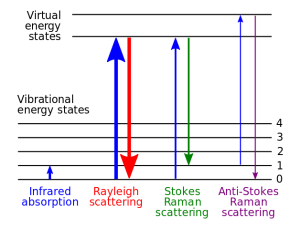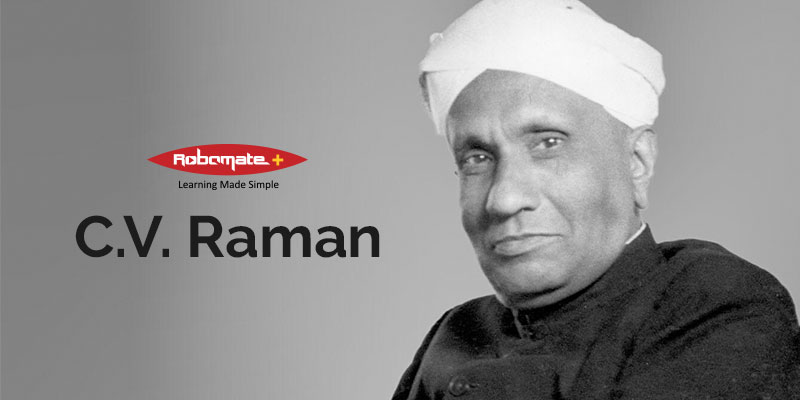Brief Biography of CV Raman
Sir Chandrasekhara Venkata Raman popularly known as Sir CV Raman was born at Tiruchirappalli in Southern India on November 7th, 1888 during the British period. His father was a lecturer and he acquired the skills of Maths and Physics from him. He graduated from Presidency College, Madras (Now Chennai) , in 1902. He studied B.A. and M. A. with the highest distinctions.
While traveling to Europe, CV Raman noticed the blue color of glaciers and the Mediterranean Sea. Curious Raman wanted to understand the reason and he carried out various experiments to understand the concept. He experimented on the scattering of light by water and ice. He utilized monochromatic light which was being emitted from a mercury lamp and allowed to fall on the transparent surface of water and ice. These recordings were made on a spectrograph. The lines which were obtained in the spectrum were referred to as ‘Raman Lines’ and the effect was called as ‘Raman effect’. CV Raman presented his theory in Bangalore on 16 March 1928 and won the Nobel Prize in Physics. Peter Pringsheim was able to successfully reproduce the effects and termed the coins ‘Raman Lines’ and as ‘Raman effect’. The great scientist breathed his last on 21 November 1970.
Raman spectroscopy:
This spectroscopic technique which relies upon inelastic scattering of photons. Monochromatic light that is visible (i.e. not ultra violet or infra red) or x-rays is used from a laser source to interact with molecular vibrations, phonons or other excitements in the system. The energy of laser photons shift up or down as a result. We are informed about the vibrational modes in the system due the shift in energy.
Raman spectroscopy is usually used to identify structural fingerprint of molecules.

The Scope and Excitement of Physics
CV Raman Achievements
- Sir CV Raman was awarded Nobel Prize for Physics for his work – Raman Scattering and Raman Effect in 1930.
- The government of India has honored CV Raman with Bharat Ratna the highest civilian award of India in 1954.
- His other prominent achievements include
- Fellow of the Royal Society in 1924 and knighted in 1929
- Franklin Medal in 1941
- Lenin Peace Prize in 1957











